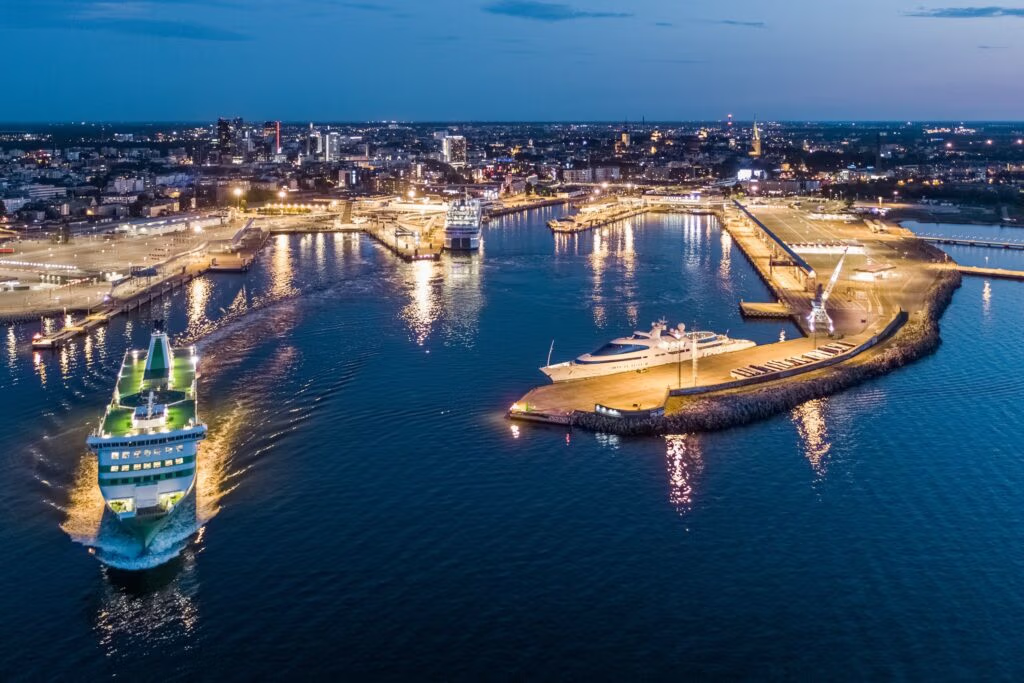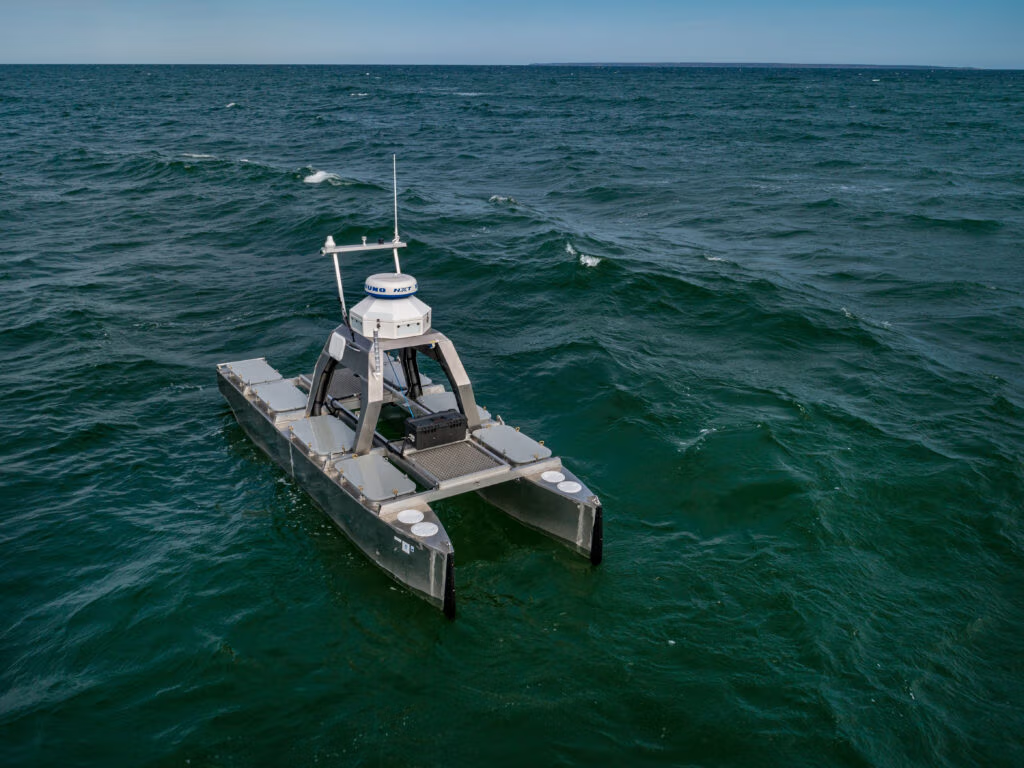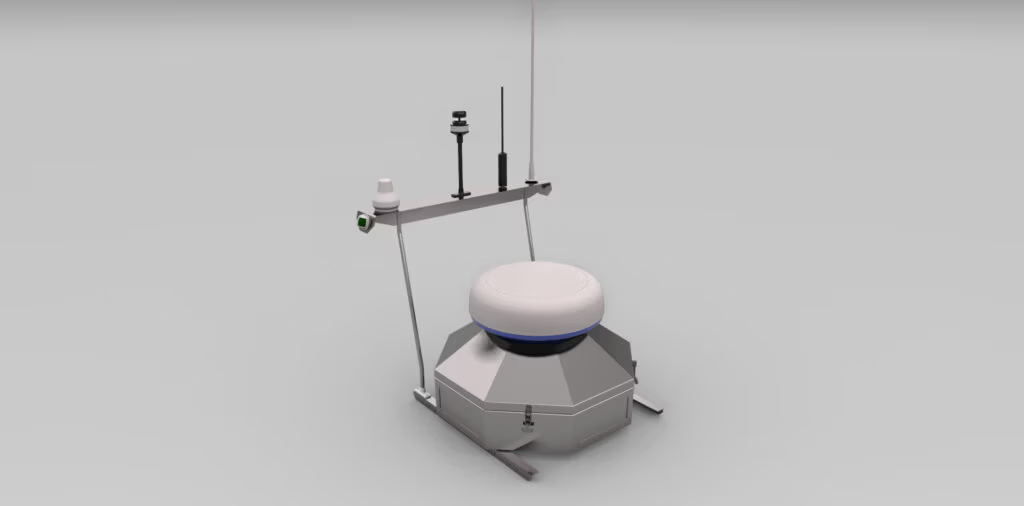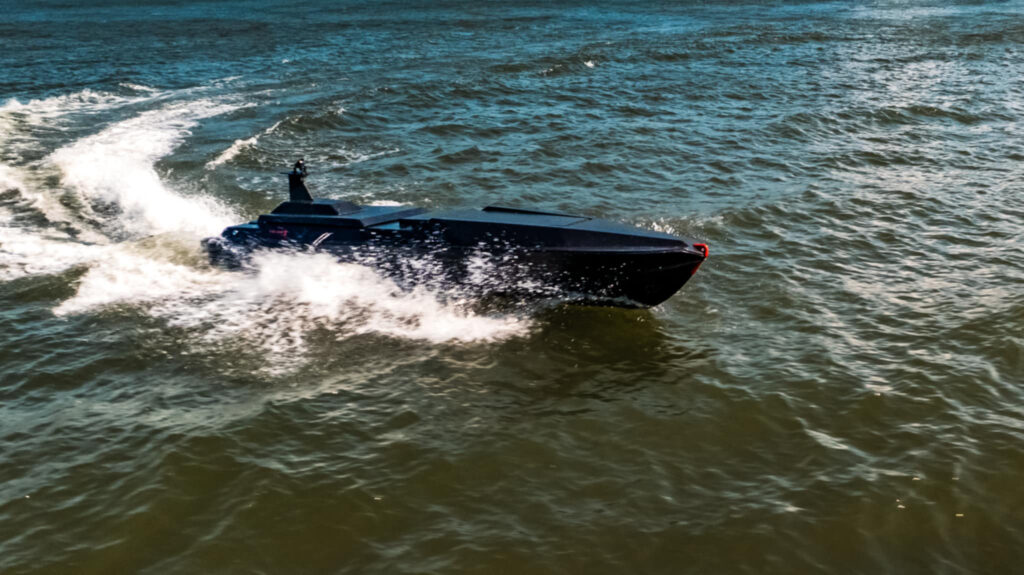The sea has always been humanity’s vital artery—through it flow goods, people, and ideas. Yet the sea is also unpredictable and harsh. It is here, among waves and storms, that the Estonian deep-tech company MindChip faces a challenge that could reshape the future of maritime operations: how to make ships move and make decisions independently, without human intervention.
Autonomous control systems have been tested at sea for years, but their broader adoption has stalled. The reason is simple: existing solutions require extensive manual calibration, significant engineering work, and are usually tied to a specific vessel or platform. This makes them expensive, time-consuming,and inflexible.
MindChip saw an opportunity in this bottleneck.

The Self-Adaptive Captain SAAC (Self-Adaptive Artificial Captain)
This is how SAAC (Self-Adaptive Artificial Captain) was born—an AI-driven control system that uses machine learning to independently learn the behavior of each vessel, creating a dedicated vessel-specific model. Once such a model exists, the system no longer needs costly or time-consuming configuration: SAAC learns the ship’s dynamics, adapts to changes in load or equipment, takes into account waves and wind, and quickly transitions the vessel to autonomous control.
In practice, this means that an ordinary ship can be turned into an autonomous platform within just a few hours. Labor costs decrease, safety increases, and new opportunities open up to operate in harsh conditions where manned vessels are limited. To protect this innovation, MindChip has filed a European patent application.
From Science to Practice
MindChip did not emerge from thin air. The company grew out of a research project at Tallinn University of Technology, where machine learning algorithms were developed and tested to improve the navigation accuracy of small robotic vessels. Research demonstrated that these models could:
- anticipate the effects of wind and waves,
- predict energy consumption under different conditions,
- create vessel-specific models that enable the system to adapt quickly.

This research laid the foundation for SAAC’s design principle: autonomy must be self-learning and universal, not rigid and manually configured.
Artificial Intelligence as the New Captain
MindChip’s value proposition is summed up in one phrase: “Never send a human to do a machine’s job.” The company focuses on creating self-learning AI systems that deliver real-time situational awareness and full autonomous control for both manned and unmanned vessels.
Unlike simple remote-controlled or semi-automated solutions, SAAC integrates massive data streams from radar, cameras, LiDAR, AIS, and inertial sensors, fusing them into a coherent operational picture. The result is accurate and reliable navigation even in complex environments, including GNSS-denied or hostile conditions.

From Deep-Tech to Industry Standard
The company’s journey began with the vision of founder Heigo Mõlder and a team of scientists and engineers—mechanical specialists, electronics experts, and AI professionals. They recognized the limitations of human-operated seafaring: fatigue, delayed reactions, high costs, and the inevitability of human error. The solution had to be more than just automation—it had to be AI that learns, adapts, and consistently makes complex decisions better than humans can.
MindChip evolved within Estonia’s digital governance and cybersecurity ecosystem, which provided fertile ground for building secure and reliable deep-tech solutions. R&D efforts focused on ensuring that the system could follow international maritime safety conventions (COLREGs) while instantly adapting to unpredictable real-world situations.
Today, MindChip has developed its first robotic vessels:
- MC6000 – for offshore operations, fisheries research, or seabed mapping – Developed cooperation with the University of Tartu
- MC6000-MIL – a defense-oriented intelligence or strike platform – Developed cooperation with Larsen Boat Company
- MC4000 – for collecting waste and oil pollution in ports – Developed cooperation with Tallinn Shipyard BLRT Company
All rely on the same autonomy backbone—SAAC – Developed cooperation with Tallinn University of Technology.

Impact on Maritime and Society
MindChip is more than just a technology provider—it is helping to shape the next generation of maritime operations. The company also contributes to broader safety and environmental protection. By combining autonomous navigation with environmental data analysis, MindChip positions itself as a strategic partner for shipbuilders, ports, research institutions, and defense organizations alike.
The MindChip team believes that in the near future, their artificial captains will be operating cargo vessels, patrol ships, and pollution-cleaning workboats.














